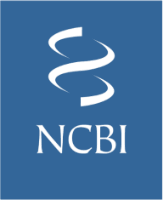“In the News” this month focuses primarily on topics related to the February’s theme: Data and Reproducibility. Items related to these topics get a bit more attention at the beginning of this list but other newsworthy items are listed at the end, more as snippets of information!
Data
How open data can help the world better manage coral reefs.
 The authors posit that since climate change is the primary stressor on the health of coral reefs worldwide, then a global solution is required. This conflicts with the manner in which this data is collected, often in isolation, by field scientists far-flung around the world. These scientists, with a burning platform of urgency, have made their entire dataset of coral reef habitats and fish in the western central Pacific available online. This was done under the US Open Data policy.
The authors posit that since climate change is the primary stressor on the health of coral reefs worldwide, then a global solution is required. This conflicts with the manner in which this data is collected, often in isolation, by field scientists far-flung around the world. These scientists, with a burning platform of urgency, have made their entire dataset of coral reef habitats and fish in the western central Pacific available online. This was done under the US Open Data policy.
https://theconversation.com/how-open-data-can-help-the-world-better-manage-coral-reefs-88805
 By comparing the likelihood that authors publishing in two different journals publishing articles about biostatistics would share their data and their code, the authors studied whether the receipt of a badge to go on an online journal denoting data and code sharing would be associated with higher rates of this behavior. One journal used badges and the other did not. The rate of data sharing, but not code sharing, was higher in the journal that awarded badges. While the results were only modest, the authors suggest that this is a reasonable, low cost way of incentivizing code and data sharing.
By comparing the likelihood that authors publishing in two different journals publishing articles about biostatistics would share their data and their code, the authors studied whether the receipt of a badge to go on an online journal denoting data and code sharing would be associated with higher rates of this behavior. One journal used badges and the other did not. The rate of data sharing, but not code sharing, was higher in the journal that awarded badges. While the results were only modest, the authors suggest that this is a reasonable, low cost way of incentivizing code and data sharing.
https://f1000research.com/articles/7-90/v1
 This exposé of Devumi, a company which they describe as selling bots is a bit frightening. While its’ topic is primarily around social media influencing, it’s an easy leap to see how this sort of technology may be used in publishing—to increase altmetric (article-level metrics), create fake citations, and to influence careers of people. They describe three types of twitter bots: a scheduled bot which tweets based on the time, a watcher bot which monitors twitter and other social media for certain topics or changes and then retweets or like those, and amplification bots. This last follow, like, and retweet posts by people who have purchased their services through companies like Devumi. The article is worth reading just from a social interest but imaging the impact in peer review publication is even more frightening!
This exposé of Devumi, a company which they describe as selling bots is a bit frightening. While its’ topic is primarily around social media influencing, it’s an easy leap to see how this sort of technology may be used in publishing—to increase altmetric (article-level metrics), create fake citations, and to influence careers of people. They describe three types of twitter bots: a scheduled bot which tweets based on the time, a watcher bot which monitors twitter and other social media for certain topics or changes and then retweets or like those, and amplification bots. This last follow, like, and retweet posts by people who have purchased their services through companies like Devumi. The article is worth reading just from a social interest but imaging the impact in peer review publication is even more frightening!
https://www.nytimes.com/interactive/2018/01/27/technology/social-media-bots.html
 On twitter, #ResearchData posts from attendees at the January 2018 Research Data Alliance EU Data Innovation Forum in Brussels covered many topics. One of the tweeters, Dⓐniel Mietchen @EvoMRI , relayed the invitation by pkdoorn, to edit a draft of "Rationale for International Alignment of Data Management Requirements" at https://docs.google.com/document/d/1Pyn_Hr5_DgYMF7ncyFWjsNjcjtPdnW8GYSEqXvmF9co/edit … which was still active as of February 7, 2018. Based heavily on the “Concordat on Open Research Data”, RCUK, 28th July 2016, http://www.rcuk.ac.uk/documents/documents/concordatonopenresearchdata-pdf/ the draft principles for aligning research data management requirements included:
On twitter, #ResearchData posts from attendees at the January 2018 Research Data Alliance EU Data Innovation Forum in Brussels covered many topics. One of the tweeters, Dⓐniel Mietchen @EvoMRI , relayed the invitation by pkdoorn, to edit a draft of "Rationale for International Alignment of Data Management Requirements" at https://docs.google.com/document/d/1Pyn_Hr5_DgYMF7ncyFWjsNjcjtPdnW8GYSEqXvmF9co/edit … which was still active as of February 7, 2018. Based heavily on the “Concordat on Open Research Data”, RCUK, 28th July 2016, http://www.rcuk.ac.uk/documents/documents/concordatonopenresearchdata-pdf/ the draft principles for aligning research data management requirements included:
1. Open access to research data is an enabler of high quality research, a facilitator of innovation and safeguards good research practice.
2. There are sound reasons why the openness of research data may need to be restricted but any restrictions must be justified and justifiable.
3. Open access to research data carries a significant cost, which should be respected by all parties.
4. The right of the creators of research data to reasonable first use is recognised.
5. Use of others’ data should always conform to legal, ethical and regulatory frameworks including appropriate acknowledgement.
6. Good data management is fundamental to all stages of the research process and should be established at the outset.
7. Data curation is vital to make data useful for others and for long-term preservation of data
8. Data supporting publications should be accessible by the publication date and should be in a citeable form.
9. Support for the development of appropriate data skills is recognised as a responsibility for all stakeholders.
10. Regular reviews of progress towards open access to research data should be undertaken.
Reproducibility
 The Royal Netherlands Academy of Arts and Science released a statement on January 15, 2018 that stated that “the systematic replication of other researchers’ work should be a normal part of science." The academy called for funding agencies, researchers, and research institutions to work together to facilitate replication studies. With this statement, the Netherlands joins other international efforts, including in the US and Great Britain, calling for ways to improve reproducibility.
The Royal Netherlands Academy of Arts and Science released a statement on January 15, 2018 that stated that “the systematic replication of other researchers’ work should be a normal part of science." The academy called for funding agencies, researchers, and research institutions to work together to facilitate replication studies. With this statement, the Netherlands joins other international efforts, including in the US and Great Britain, calling for ways to improve reproducibility.
https://knaw.nl/en/news/news/make-replication-studies-a-normal-part-of-science
 The editors of PLOS Biology have formalized a policy that emphasizes the importance of “complementary research”—or that work which confirms or extends a recently published study. The journal will consider such papers, submitted within 6 months of publication of the original work, for publication. They endorse the importance of having two separate research groups finding the same or similar results, to be complementary to each other, and to have the effect of increasing the confidence one would have in the results.
The editors of PLOS Biology have formalized a policy that emphasizes the importance of “complementary research”—or that work which confirms or extends a recently published study. The journal will consider such papers, submitted within 6 months of publication of the original work, for publication. They endorse the importance of having two separate research groups finding the same or similar results, to be complementary to each other, and to have the effect of increasing the confidence one would have in the results.
http://journals.plos.org/plosbiology/article?id=10.1371/journal.pbio.2005203
Other news.....
 On Jan 16, 2018, the US FDA announced a new project to post parts of the Clinical Study Reports of new drugs applying for approval in advance of the entire study. This will be data related to parts of the CSRs that were most important to the FDA’s assessment of the safety and efficacy of the drug.
On Jan 16, 2018, the US FDA announced a new project to post parts of the Clinical Study Reports of new drugs applying for approval in advance of the entire study. This will be data related to parts of the CSRs that were most important to the FDA’s assessment of the safety and efficacy of the drug.
https://www.fda.gov/NewsEvents/Newsroom/PressAnnouncements/ucm592566.htm
 About 200 universities in Germany locked horns in 2017 with Elsevier as the universities tried to negotiate for a country-wide price for Elsevier journals. Failing that, until further negotiations proceed, Elsevier has agreed to allow access to paywalled journals until a contract is agreed upon.
About 200 universities in Germany locked horns in 2017 with Elsevier as the universities tried to negotiate for a country-wide price for Elsevier journals. Failing that, until further negotiations proceed, Elsevier has agreed to allow access to paywalled journals until a contract is agreed upon.
https://www.nature.com/magazine-assets/d41586-018-00093-7/d41586-018-00093-7.pdf
 Richard Smith, the former editor of the BMJ wrote an op-ed explaining the Elsevier is getting out of the publishing business and into the big data business. The plan is for scientists to become both the consumer and the product of Elsevier.
Richard Smith, the former editor of the BMJ wrote an op-ed explaining the Elsevier is getting out of the publishing business and into the big data business. The plan is for scientists to become both the consumer and the product of Elsevier.
http://blogs.bmj.com/bmj/2018/01/10/richard-smith-a-big-brother-future-for-science-publishing/
In one of the Elsevier journals, peer reviewers are notified when a submission that matches their interests is ready for review. They are assigned on a first-come, first-assigned basis and then receive detailed feedback from the journal editors about the quality of their review using a standardized form. Everyone seems happy!
 Innovation in peer review: introducing “volunpeers”.
Innovation in peer review: introducing “volunpeers”.
https://www.elsevier.com/connect/reviewers-update/innovation-in-peer-review-introducing-volunpeers
 Open access, post publication peer review format similar to f1000Research will launch in the first quarter of 2018 to ensure that any research funded by AAS affiliated and funded programs can be published without barriers in a way that supports reproducibility and the AAS’s Open Access policy.
Open access, post publication peer review format similar to f1000Research will launch in the first quarter of 2018 to ensure that any research funded by AAS affiliated and funded programs can be published without barriers in a way that supports reproducibility and the AAS’s Open Access policy.
https://aasopenresearch.org/
 NCBI (National Center for Biotechnology Information), a division of the U.S. National Library of Medicine, will discontinue PubMed Commons. The reason cited was “low level of participation” that did not “warrant continued investment in the project.” Regardless of the reasons behind the discontinuation this action, it marks the end of a service generally thought to be a useful source of information and debate that fostered open communication.
NCBI (National Center for Biotechnology Information), a division of the U.S. National Library of Medicine, will discontinue PubMed Commons. The reason cited was “low level of participation” that did not “warrant continued investment in the project.” Regardless of the reasons behind the discontinuation this action, it marks the end of a service generally thought to be a useful source of information and debate that fostered open communication.
https://ncbiinsights.ncbi.nlm.nih.gov/2018/02/01/pubmed-commons-to-be-discontinued/